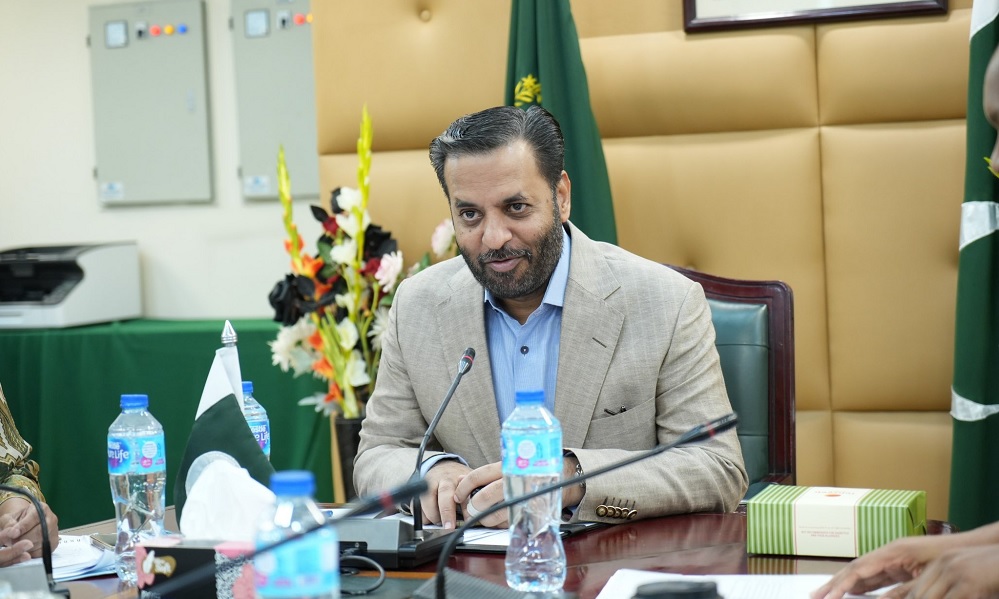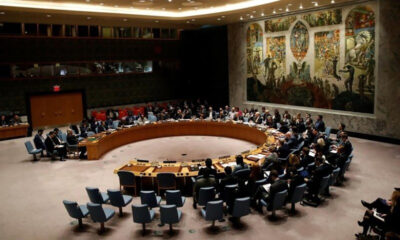Latest News
CSTO calls for inclusive government in Afghanistan

Leaders from member states of the Collective Security Treaty Organization (CSTO) following a meeting in Astana on Thursday called for establishment of an inclusive government in Afghanistan to ensure stability and prosperity in the country.
In the Declaration of the Collective Security Council of Russia-led military alliance, they also called for increase in the level of humanitarian assistance to Afghanistan.
“We stand for the establishment of Afghanistan as a peaceful, independent and united state, free from war, terrorism and drugs,” reads the declaration. “We note the importance of forming an inclusive government in Afghanistan that will represent the interests of all segments of the population and ethnic groups as one of the key factors for ensuring a stable and prosperous Afghanistan.
“We call on the international community to increase the volume of humanitarian aid to Afghanistan in order to support the population and develop this country’s infrastructure.”
The members of the Council believe that the development of economic interconnectedness and integration of Afghanistan into the regional economic systems will contribute to strengthening peace and stability. The Council also emphasized the potential of the multilateral platforms on regulation of the situation in Afghanistan including under the UN aegis.
“We reaffirm our commitment to strengthening and improving collective efforts in the fight against international terrorism, extremism, illegal trafficking in narcotic drugs, psychotropic substances and their precursors, illegal arms trafficking, illegal migration, as well as protecting the population from natural and man-made disasters,” the document reads.
This comes as the Islamic Emirate has repeatedly claimed that the current government in Afghanistan is inclusive and it represents all ethnic groups in the country.
Latest News
Bayat Power showcases clean energy achievements and vision at Kabul’s Green Growth Forum
Business and development leaders convene in Kabul to advance financing and partnerships for a greener future

In a landmark effort to boost Afghanistan’s renewable energy sector and accelerate economic recovery, Kabul this week hosted the “Partnerships for Green Growth: Business-to-Business Convening on Renewable Energy Investments.”
Held on Wednesday and Thursday, June 25 and 26, the high-level event brought together national and international stakeholders under the theme “Accelerating Investments Through Partnerships and Facilitating Access to Finance.”
Amidst a fragile but gradually recovering economy, Afghanistan continues to face a stark energy deficit that hampers industrial growth, limits delivery of essential public services, and impacts the quality of life for millions. Despite vast solar, wind, and hydro resources, only a fraction of the country’s renewable energy potential has been harnessed.
According to UNDP, this persistent energy gap is a major development challenge. “Closing this gap requires urgent and inclusive investment, with a strong focus on scaling up renewable energy solutions that are resilient, decentralized, and adapted to Afghanistan’s diverse geography,” the agency stated.
“Attracting investment in the renewable energy sector is not only necessary, but also strategically advantageous,” UNDP added.
“The Afghan energy market holds considerable potential, particularly in regions where off-grid and mini-grid systems can rapidly transform local economies” – UNDP
The agency emphasized that unlocking this potential requires proactive dialogue and collaboration among development partners, the private sector, and local stakeholders, along with showcasing bankable opportunities and de-risking tools.
This week’s forum served as a strategic platform to address these issues by connecting investors, development partners, and policymakers to explore new financing models and partnerships.
Organized in collaboration with the United Nations Development Programme (UNDP), the Afghanistan Chamber of Commerce and Industries (ACCI), and the Afghanistan International Bank (AIB), the conference spotlighted the Green Economy Financing Facility (GEFF)—an initiative designed to mobilize sustainable investments using Shariah-compliant financial tools and blended finance models.
Bayat Power Highlights Local Capacity and Innovation
A key voice at the event was Bayat Power, Afghanistan’s first private company in over 40 years to establish and operate a domestic gas-fired power plant.
In his address to delegates, Lutfullah Stanikzai, Business Development Director of Bayat Power, reaffirmed the company’s long-term commitment to energy independence.
Founded in 2013 under the Bayat Group, the company launched Bayat Power-1 in 2019 as a public-private partnership with DABS, the Ministry of Energy and Water, Afghan Gas State-owned Company, Siemens Energy, and others. Since then, the plant has produced over 1 billion kilowatt-hours of electricity, powering homes, hospitals, schools, mosques and businesses across the country.
Stanikzai emphasized the company’s use of cutting-edge technologies—including Siemens’ SGT-A45 mobile gas turbines, among the most efficient in the world—and its deployment of over 1,000 smart meters in Kabul as part of a pilot project to improve grid efficiency.
“Our efforts have not only powered essential public services but also generated thousands of direct and indirect jobs, contributing to economic stability and workforce development,” Stanikzai said. He added that Bayat Power’s tax contributions and gas purchases support national revenue generation.
“Afghanistan deserves cutting-edge solutions, not outdated technology,” he stressed. “We are committed to deploying modern systems that offer both performance and environmental sustainability.”
Looking ahead, Bayat Power is expanding into solar, wind, and thermal energy projects and seeking to engage international partners for technical collaboration and investment.
“Our long-term vision aligns with Afghanistan’s goal of a resilient and self-reliant energy future,” Stanikzai concluded.
Bayat Power’s presentation stood out as a compelling example of what can be achieved through innovation, private-public collaboration, and a deep commitment to national development.
Latest News
IEA following up on vicious attack of Afghan child at Moscow airport
Latest News
Pakistan’s health minister to visit Kabul

Pakistani media have reported that Syed Mustafa Kamal, Pakistan’s Health Minister, will travel to Kabul to strengthen border cooperation and polio vaccination efforts.
Pakistan and Afghanistan are the only countries where the poliovirus remains endemic
Kamal emphasized in a meeting in Islamabad that eradicating polio is not just a program but a national mission. He also reaffirmed the government’s commitment to making Pakistan a polio-free country.
This trip is announced amid the return of hundreds of thousands of Afghan refugees from Pakistan. The World Health Organization (WHO) has warned that among the returning refugees are thousands of unvaccinated children, which poses a risk of increasing polio cases in the country.
According to reports, last year 74 polio cases were recorded in Pakistan and 25 in Afghanistan.
-

 Regional5 days ago
Regional5 days agoSaudi Arabia calls for end to Israel-Iran War as world leaders react to Trump’s bombing of Iran
-

 Regional5 days ago
Regional5 days agoIran is under attack by a nuclear superpower and a nuclear regime, says Iran’s FM
-

 Sport4 days ago
Sport4 days agoAFPL: Sadaqat claims victory, Omid and Jawanan Maihan draw
-

 Regional5 days ago
Regional5 days agoIran condemns US strike on nuclear sites, says its a ‘Grave Violation’ of international laws
-

 Latest News4 days ago
Latest News4 days agoIranian envoy calls for Afghan solidarity amid escalating war with Israel
-

 Latest News3 days ago
Latest News3 days agoWashington signals policy shift on Afghanistan during UN Security Council session
-

 Sport5 days ago
Sport5 days agoAFPL: Action-packed Sunday sees wins for Noorzad and Panjshir
-

 World4 days ago
World4 days agoUN Security Council meets on Iran as Russia, China push for a ceasefire

























